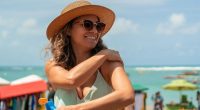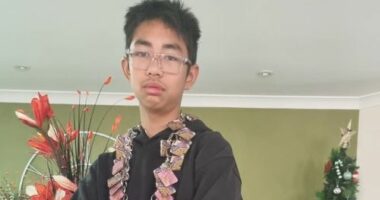Share this @internewscast.com
They don’t picture school lunches packed sitting down, or playdates coordinated around medical appointments and energy crashes. They don’t see the pacing, the planning, the constant weighing-up of effort and recovery, or a mum who has had to invent a hundred quiet, creative ways to show up.

Allie says it’s been a long journey to get her diagnoses. Source: Supplied
‘I began to downplay my symptoms’
Worn down by frustration and defeat, I began to downplay my symptoms and I avoided seeking help. It was an uphill battle to convince doctors those symptoms weren’t “just fibro”. And I didn’t have the energy to keep trying.
‘Suddenly there was no hiding’
Despite that, using mobility aids has been the right choice. What initially felt like ‘giving in’, has allowed me to do more with my son — and for longer periods of times.











